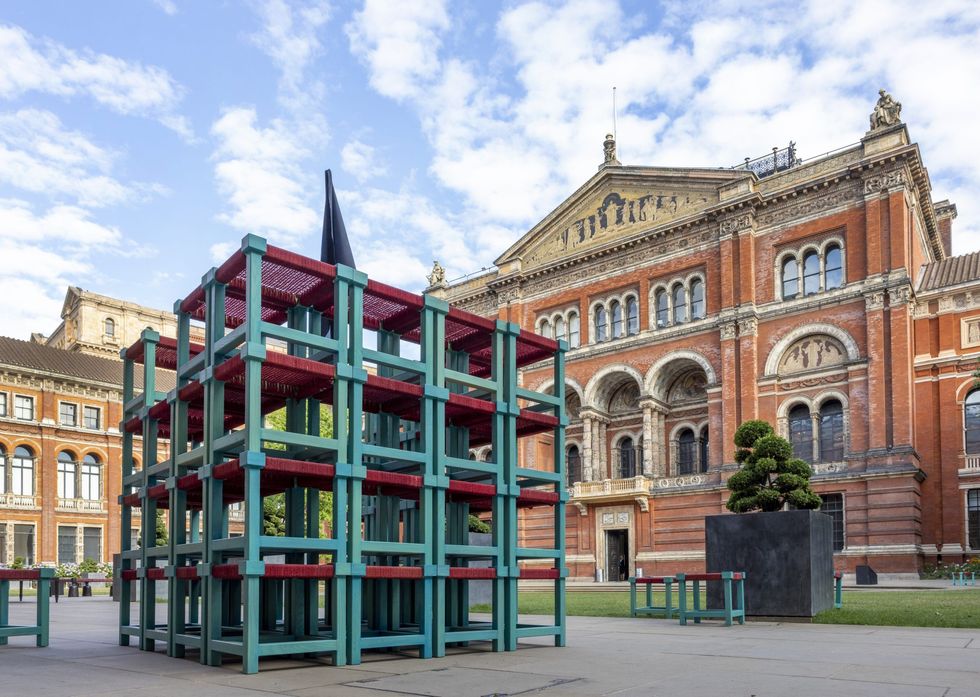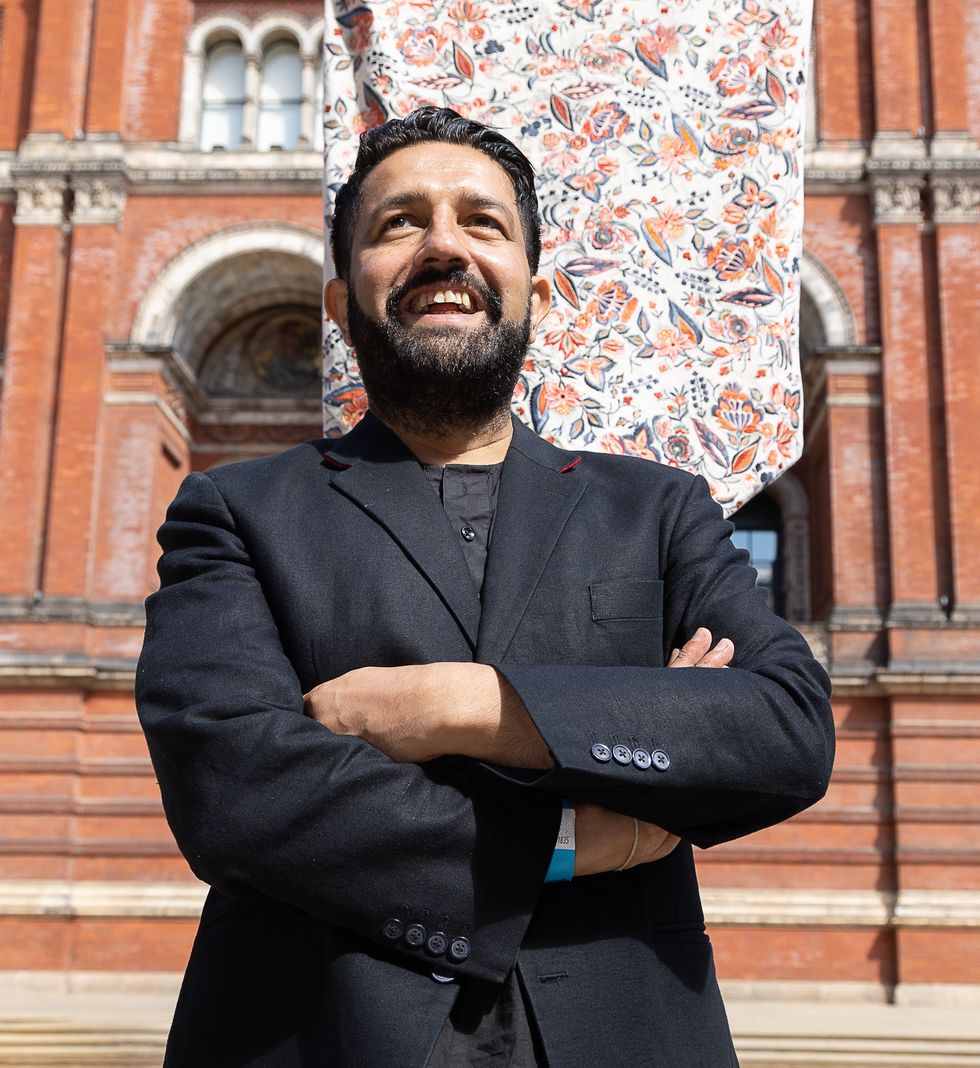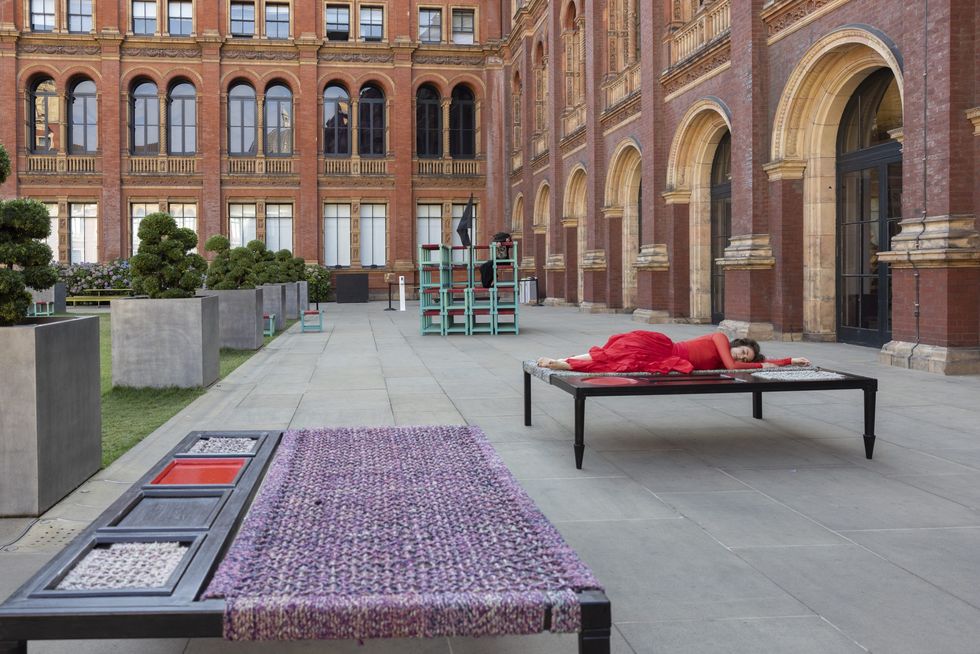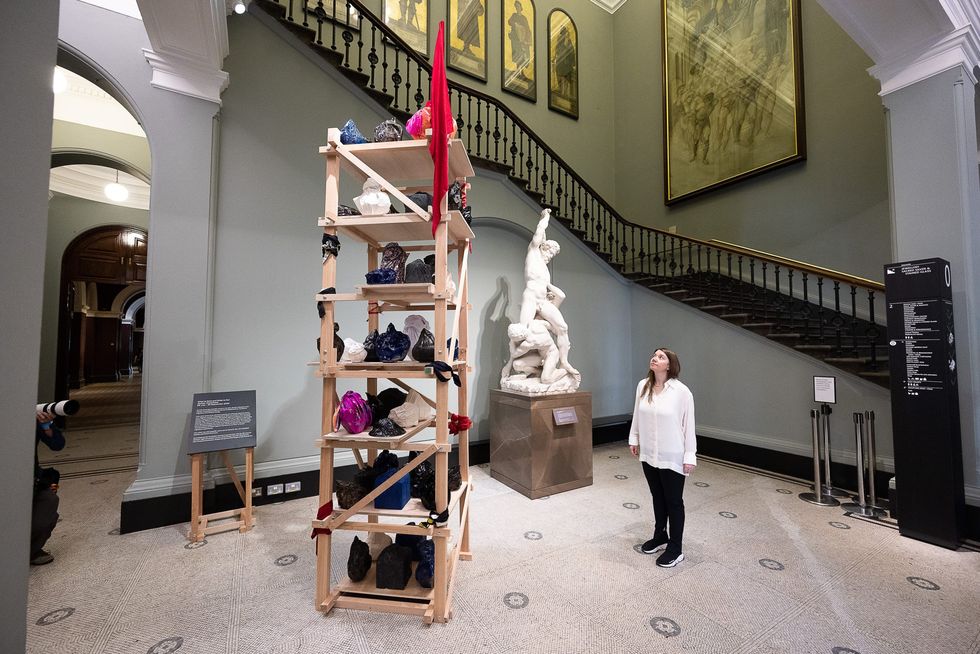MIGRATION, capitalism and climate change are among the themes explored by British Asian artist Osman Yousefzada in his new work at the V&A in south London.
A tripartite of site-specific installations, the works draw upon Yousefzada’s Pakistani heritage and commemorate the 75th anniversary of the country this weekend.
What is Seen and What is Not, as the show is titled, was commissioned by the British Council in partnership with the V&A. “It’s about having a platform to tell your own stories,” Yousefzada told Eastern Eye at the launch of his work last month. “I had these three spaces and I was going to try and connect them; I wanted people to interact with them.”
Over a span of about nine months, Yousefzada created his work – which includes three tapestries depicting abstracted figures in motion that hang at the entrance of the south London museum, an installation of wrapped objects as an ode to female migrants and finally, charpoys, wooden stools and a boat, set in the John Madejski garden of the V&A.

Yousefzada explained what he was trying to convey. “We all have our own stories. This starts in the grand entrance – the figurines on the tapestries are what I stumbled across in the Falnama: The Book of Omens, which looks at the world of gins, and ghouls. Those became tarot cards on the streets of Mughal India, Turkey and Iran.
“When you migrate, you flip over a fortune card, and these are the talismans for me – they give you power and tell you a story to fight another day.”

A second installation in the sculpture galleries – showing textile-wrapped objects cast in glass and clay and placed on shelves – hopes to give voice to female migrants, “or spaces of agency and patriarchy, of places that don’t often get told, or stories that don’t often get told”, the artist said. “The folds and the knots in clay and glass become a marker of identities and ownership of consumerism, of belonging and identity… always arriving and never unpacking. It’s like a shrine to female migration, female perseverance and resilience; the stories we don’t necessarily get told – of the preservation of domesticity of homemaking.
“It’s also about shared ownership. In a place where you probably have less space, how do you get big agency? How do you mark out your space within that space?”
Finally, in the garden, “with Queen Victoria overlooking” visitors, Yousefzada looks at the co-relationship of “textiles, the start of capitalism, colonialism and community”.
Three charpoys, with rope made from recycled textiles and incorporating wood from doors, several small wooden stools (modas), as well as a boat painted in black are a nod to the migrant experience and to climate change, respectively.

Yousefzada said, “The boat is a signifier, a vehicle that takes you to the other side – one also of hope and fulfilment.”
The artist, who grew up in Birmingham to immigrant parents from Pakistan, attended SOAS and Central Saint Martins before doing a masters at Cambridge.
He told Eastern Eye how his work with textiles links the shared history of south Asia with Britain. “It’s kind of gone back full circle because they (the British Raj) banned a lot of the textile industries back then. It’s an idea of cycles, of movement, capitalism, or the colonial relationship. And then again, space for sharing and community.”
As both Pakistan and India mark the milestone freedom anniversaries this month (on August 14 and 15, respectively), Yousefzada reflected on what the word migrant means.
“It’s a dirty word; it’s always been a dirty word, even in Pakistan, the idea of a mohajir (Muslim migrants).
“The problem with migration is that people are just always left to their own devices. That’s why the idea of the shrines is quite interesting, or mazars, langars, ashrams [where people can gather and have a meal free of charge, prepared by volunteers], because people can actually be part of a community. So they’re kind of these remedies to that sort of migration.”

Exploring the migrant experience is part of Yousefzada’s research as he pursues a PhD at the Royal College of Art. His work has been shown at prominent galleries in the UK and abroad, including in south Asia, the US and Europe. Yet, his pride was evident as his work was unveiled at the V&A on July 29. “I used to come here as a student and I saw myself in the south Asia galleries. It meant something to me,” he told Eastern Eye.
Asked if UK museums should return colonial treasures, Yousefzada said it was a “layered conversation” and added, “but I don’t think you can really deny the conversation of extraction of anthropology”.
Museums could collaborate and perhaps share ownership and support culture and its preservation in countries where the objects were taken from, the artist said. But he wasl also concerned that “you don’t really know how it’s actually going to be looked after as well”.
As both south Asian neighbours mark seven and a half decades since British colonial rule ended, Yousefzada said, “It’s good to have such pockets of spotlights; it’s monumental.”
And what does the anniversary mean to him? “I come from illiterate parents; I’m trying to pinch myself as I’m here trying to have these conversations,” he said.
Osman Yousefzada’s installations are open to the public at the V&A until September 25






 Apsana Begum
Apsana Begum











